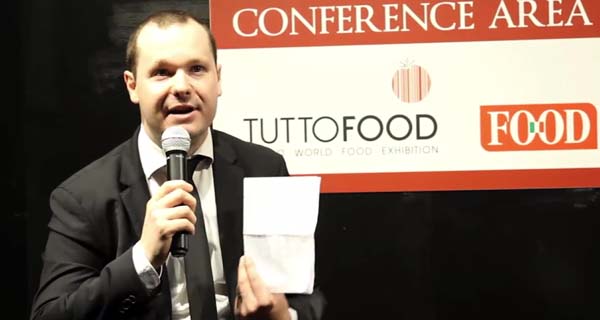
Delhaize Group is a Belgian international food retailer present in seven countries on three continents. Throughout 3.402 stores and its locally robust brands, last year Delhaize Group registered Eur 214 billion revenues and employed 150.000 workers. Starting from January 2015, the Group joins Coopernic, the European buying alliance, which is currently formed around E. Leclerc and Coop Italia. With regard to become Delhaize’s supplier, which characteristics an Italian food industry producer should have? “Aside from Food Safety and Quality Certifications required by law, in order to tap into our range, quality is the most important characteristic. We are seeking for premium items which have premium raw materials, those which are able to bring genuine Italian flavors on the international tables” says Pietro John Rollo, director of private brand sourcing&synergies Europe of Delhaize – “Too often manufacturer think that a recipe is too much Italianized to be sold abroad. It’s a big mistake. Even if there is no doubt that flexibility represents a best practice to succeed in foreign markets, in the case of food industry, Italy is a place where there is a unique gastronomy tradition. It’s up to our chain of expertise to accept pure products or ask for making adjustments in recipe to meet foreign demand.” It could be that not only major players become suppliers of Delhaize which is willing to evaluate also smaller business.
“Entering in the chain as a co-packer and then slowly to gain the opportunity to push your own brand is a strategy quite common in our domestic country – says Rollo – . But not so act some international distributors such as Delhaize which prefers to make the opposite. First of all we sell new products with its own brands, we test the market and finally we can accept successfully manufacturers by changing the brand to private label. Indeed 55% of our sales are in private label”.
Once the item has been included in Delhaize’s catalog. What happens then? “We usually adopt the sequent strategy plan which is made up of three steps. Firstly we market the product by packaging. Our benchmark is Marks & Spencer, the champion in marketing strategies. Secondly, we set up a communication campaign, explaining the characteristics to consumers. Thirdly, we sort out focused initiatives, for example”The Italian Week” when we try to educate shoppers to gastronomy culture”.
But the question is: what Italian companies do to communicate with foreign players? How Pietro John Rollo points out there are some big Italian companies, for example Cirio, Ferrero and Barilla which Delhaize is all currently selling, that invest big budget. On the other hand smaller producers find difficulties. “We care about their communication strategy. We prefer that the manufacture focus on developing quality standards, instead of spend extra money in marketing campaigns”.
When an Italian company loses competitiveness in the global scenario, it’s not just a matter of price, according to the executive. There is a problem of how to build a responsive supply chain. “Italy has a domestic supply chain which is weaker than its competitors’. The closest Belgium markets, France and Germany in particular, take advantage of this. As a result, they export more. Not only quality, but also an effective supply chain is an important driver to increase consumption. To support Italy, Delhaize has started to organized deliveries by railway from Southern Italy to Belgium starting from five years ago. Once was impossible”.
The final suggestion? Italian manufacturers should become more flexible. “There are some products that could not be adulterated because of their strong identity. Delhaize is very sensitive to this range of products and our effort is to preserve the pureness brand identity and raw materials. On the contrary, some others need to be adapted to domestic recipes. Here the strategy is to support producers in the program of to bring Italian know how in the conditions to meet foreign demands”. and he adds ” We have a partnership with Bertagni pasta maker. It’s a case history of a successfully collaboration between manufacturers and distributors. We helped the company to develop business in Belgium. We made interventions in their recipes and proposed innovation. The result was products that succeed in the market and we are continuing agreement.”
